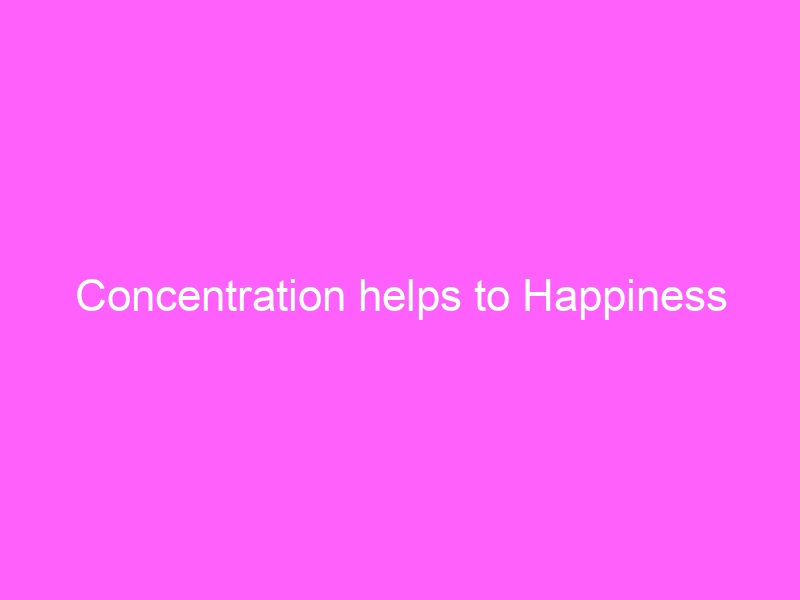Happiness depends on whether one is able to keep his thoughts in check. This is at least the result of a new study, published in ‚Sience‘ of 12 November 2010. Two psychologists Daniel Gilbert and Matthew Killingsworth, of Harvard University undertook an empirical study using an iPhone application and came to the conclusion that our thoughts wander in almost 47 percent of the time, rather than to focus on what we’re doing. This seems to have serious consequences for our emotional being. Killingworth opened a website on which those interested could participate as volunteers in the study. The investigation was carried out by means of a web application for iPhone. Developed by Killingsworth for this purpose were collected at the end of the data of 2250 volunteers aged from eighteen to eight and evaluated.
The participants in the study by e-mail repeatedly asked for her health, what they’re doing, how they feel, whether they focus on their work or somewhere else with the idea and are the most important issue – they feel happy right now. The results were surprising. It was found that wander in the real world, the idea even more than under laboratory conditions. Although the thoughts wandered to the General pleasurable activities or events, this did not mean that the test subjects would have won it any additional happiness.
In the subsequent analysis found the two psychologists that the digression of thought rather the cause of unhappiness rather than the result was. Apparently, it is important to keep the thoughts together and focus to develop a sense of happiness. In other words, to live in the here and now rather than too much with „what if ….“ to employ. The center of many spiritual teachings – live in the here and now. The intention of the meditation, for example, to bring the idea to rest and focus light, which is reflected later in efficiency, productivity, creativity and the like. In this respect the results of this study appear with the contents of many spiritual teachings are consistent. The study also showed that people are happiest when they have sex, involved in fitness activities or hold a nice conversation.
Unfortunately, happiness is found much more difficult than generally assumed. Gilbert, a professor of psychology at Harvard University, describes in his book „Stumbling on Happiness“ (German title: „stumble on Happiness“, Goldmann Verlag, 2008) the tendency of people not knowing exactly what makes him happy. As a result, he strives for things that tend to have the opposite effect and leave him unfulfilled. Know yourself – an easy-seeming principle, but unfortunately difficult to implement in reality. Our own desires and ambitions are superimposed over time from all possible influences, modified and partially buried. Based on these factors, we may produce a vision that is either too optimistic – the birthday party is never as good as it has painted itself – or too pessimistic – it does not work anyway – can be.
Our ability to with the daily ups and downs of life can be done, turn out to be an obstacle. Man has the ability to handle dangerous or extremely painful events by hindsight, the situation considered perfectly rational, and thus the ability to process this experience and to leave behind. Gilbert calls this the „psychological immune system“. However, this system only from a certain „threshold of suffering“ is active. As a result, tend many to experienced difficult or embarrassing situations exaggerate and dramatize in order to bring this immune system used to process the event at faster to find in a happier frame of mind back and not in the phase of „My God was the embarrassing „to remain.
The study also shows that it has direct consequences for our happiness, how much and where our thoughts wander, and that sustainable than activities that are being exercised. The ability of reflection about the past and the future is to some degree is essential for planning and organization, and was sometimes even survival. Apparently, but also a high spiritual price to pay for this, as so often we are ourselves in the way in the pursuit of happiness.
